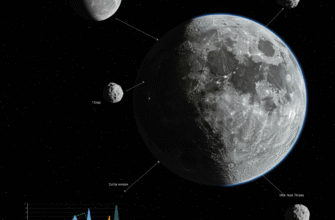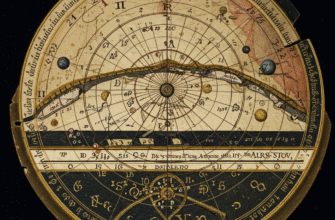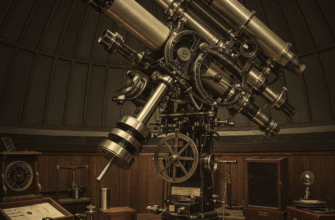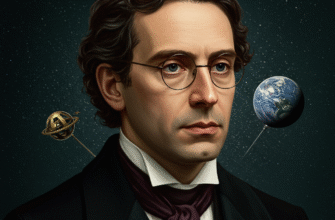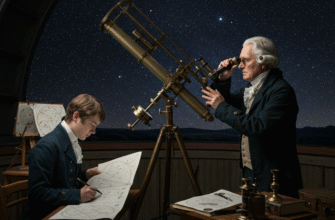The ancient world whispered tales of heroes and gods, their lives tangled in threads of fate, passion, and divine meddling. Among these, the story of Hippolytus, son of the hero Theseus, stands as a stark reminder of virtue’s vulnerability and the devastating power of scorned deities. His life, dedicated to purity and the wild hunt, became a battleground for cosmic jealousies, culminating in a tragedy that echoed not only on earth but possibly among the stars themselves, in the celestial figure of Auriga, the Charioteer.
The Devotion That Sparked a Fury
Hippolytus was no ordinary prince. Born of Theseus and an Amazonian queen—either Hippolyta or Antiope, depending on the teller—he inherited a spirit more attuned to the untamed wilderness than the polished courts of Athens or Troezen. His heart belonged to Artemis, the virgin goddess of the hunt, the moon, and wild things. He spent his days in her sylvan company, revering her chastity and shunning the entanglements of mortal love. This exclusive devotion, however, drew the ire of another, more tempestuous goddess: Aphrodite, the embodiment of love, desire, and procreation. To her, Hippolytus’s asceticism was not just neglect, but a profound insult.
Aphrodite, observing Hippolytus’s unwavering allegiance to her divine rival, felt her power slighted. She vowed that the youth who scorned her gifts would learn the bitter cost of such disdain. Her vengeance would be intricate and cruel, designed to shatter his world and the lives of those around him.
The stage for this divine retribution was set when Theseus, Hippolytus’s father, took a new wife: Phaedra, a Cretan princess, daughter of Minos and Pasiphaë, and sister to Ariadne. With Theseus often absent on heroic exploits, a dangerous vacuum formed within the household, one Aphrodite was eager to fill with her destructive influence.
A Heart Ensnared: Phaedra’s Tragic Secret
It was upon Phaedra that Aphrodite’s curse descended. The goddess ignited an uncontrollable, consuming passion in Phaedra’s heart for her stepson, Hippolytus. This love was forbidden, unnatural, and utterly agonizing for the queen. She wrestled with her feelings, her health deteriorating under the strain of her secret torment. Her loyal old nurse, witnessing Phaedra’s decline, eventually coaxed the truth from her tormented mistress. The nurse, perhaps meaning well but acting unwisely, resolved to mediate, hoping to find some resolution to Phaedra’s desperate plight.
She approached Hippolytus, revealing the queen’s secret desires. The young man’s reaction was one of pure, unadulterated horror. His devotion to Artemis was not merely a preference but a core tenet of his being, and the idea of such a union, especially with his father’s wife, repulsed him to his very soul. His response, famously captured in Euripides’ tragedy, was a torrent of revulsion, not just against Phaedra’s specific advance, but against womankind in general, whom he saw as agents of corruption and defilement.
The Unraveling: Accusation and Despair
Phaedra, who may have overheard Hippolytus’s scathing denunciations, was plunged into the depths of shame and despair. Fearing exposure and the ruin of her reputation—and perhaps in a twisted act of self-preservation or spite—she made a fateful decision. She penned a letter, or inscribed a tablet, falsely accusing Hippolytus of violating her, of committing the very act he so vehemently abhorred. Then, she took her own life, leaving behind a scene of domestic tragedy that would soon ensnare her husband and stepson.
When Theseus returned to find his wife dead and the damning accusation clutched in her hand, his grief quickly turned to incandescent rage. He had once been granted three wishes by his divine father, Poseidon, god of the sea. Without pausing for investigation, without questioning the word of his dead wife against his living son, Theseus unleashed one of these irrevocable boons. He called upon Poseidon to destroy Hippolytus.
The concept of a divine boon, particularly one granted by a powerful god like Poseidon, was a serious matter in Greek mythology. Such wishes, once uttered, were typically binding and carried immense, often tragic, consequences. Theseus’s rash use of this power highlights the destructive potential of grief-fueled anger.
Hippolytus, confronted by his father’s fury and the shocking accusation, vehemently protested his innocence. He swore sacred oaths, but his past disdain for Aphrodite and his somewhat aloof nature perhaps made his pleas less convincing to a father blinded by sorrow and betrayal. Theseus, unmoved, banished his son from the kingdom.
The Chariot, the Monster, and the Crushing End
As Hippolytus drove his chariot along the coast, heading into exile, Poseidon’s curse manifested in a terrifying spectacle. A monstrous bull, seemingly formed from the surging waves, emerged from the sea. Hippolytus’s horses, expertly trained though they were, panicked at the unearthly sight and sound. They bolted, veering wildly, deaf to their master’s commands. The chariot shattered, and Hippolytus became entangled in the reins, dragged mercilessly over rocks and rough terrain by his own terrified steeds. The skilled charioteer met his end through the very animals he had mastered, a victim of a father’s curse and a goddess’s wrath.
The news of the horrific accident reached Theseus, but it was another divine intervention that brought the full, agonizing truth to light. Artemis herself appeared before the grieving king. She revealed Aphrodite’s malicious scheme, Phaedra’s lie, and Hippolytus’s unwavering innocence and virtue. The goddess of the hunt mourned her devoted follower, berating Theseus for his credulity and rash judgment.
Theseus was overwhelmed with remorse, his earlier rage replaced by a crushing weight of guilt. The dying Hippolytus was brought before him, and in a poignant final scene, father and son reconciled, Hippolytus absolving Theseus of blame, recognizing the machinations of the gods. Artemis, before departing, promised to avenge Hippolytus by inflicting a similar pain upon a favored mortal of Aphrodite. She also decreed that honors would be established for Hippolytus in Troezen, where young women would offer locks of their hair to him before marriage, forever memorializing his tragic purity.
A Hero’s Ascent? Hippolytus and the Charioteer in the Stars
The tragic tale of Hippolytus, a master of horsemanship destroyed by his own chariot, resonates deeply with imagery of control lost and virtue betrayed. It is perhaps this powerful connection to chariots and a dramatic, horse-related demise that led some ancient commentators to see Hippolytus immortalized in the night sky as the constellation Auriga, the Charioteer.
The constellation Auriga is a prominent feature of the winter sky, often depicted as a man holding the reins of a chariot and carrying a goat (the star Capella) and her kids (the Haedi). The most common mythological figure associated with Auriga is Erichthonius, an early king of Athens. Legend says Erichthonius, who was lame, invented the quadriga, the four-horse chariot, to help him move about and to appear more imposing in battle. His ingenuity was rewarded by Zeus with a place among the stars.
Other figures, too, have been linked to Auriga, including Myrtilus, the treacherous charioteer of King Oenomaus, who was murdered by Pelops. However, the candidacy of Hippolytus is particularly compelling due to the specifics of his story. His exceptional skill with horses was a defining characteristic, second only to his devotion to Artemis. The cruel irony of being killed by the very creatures he loved and controlled offers a potent narrative for celestial commemoration.
While Erichthonius remains the most widely accepted identification for Auriga, the practice of associating multiple myths with a single constellation was not uncommon in antiquity. Different regions or schools of thought might propose their own heroes for such stellar honors. The connection of Hippolytus to Auriga highlights his significance as a tragic hero linked to horsemanship.
The act of transforming a mortal into a star or constellation, known as catasterism, was a way to grant immortality and eternal remembrance. If Hippolytus became Auriga, it would be a poignant celestial monument. The Charioteer in the sky would forever recall the young prince whose life was a testament to his chosen virtues, and whose death was a harrowing display of divine power and human fallibility. It serves as a cosmic reminder of his skill, his tragic fate, and perhaps, a form of divine apology or recognition from a cosmos that had treated him so harshly.
Echoes in Other Traditions
The story of Hippolytus didn’t entirely end with his death on the shores of Troezen or even his potential ascent to the stars. In Roman mythology, a figure named Virbius was worshipped alongside Diana (the Roman equivalent of Artemis) at her sacred grove in Aricia. According to some traditions, particularly championed by Virgil, Virbius was none other than Hippolytus, resurrected by the healer-god Asclepius (Aesculapius to the Romans) at Artemis/Diana’s request. To escape further divine persecution, particularly from a vengeful Aphrodite/Venus or even Zeus (who had struck Asclepius down for daring to bring the dead back to life), Hippolytus was spirited away to Italy to live out his days in quiet devotion.
This resurrection narrative offers a different kind of immortality, one on earth rather than in the heavens. Does it conflict with the Auriga theory? Not necessarily. Myths are fluid, capable of holding multiple, sometimes contradictory, truths simultaneously. Hippolytus could be remembered as Virbius in one cult and as a celestial Charioteer in another stream of mythological interpretation. Both serve to underscore his unique status and the profound impact of his story.
The tale of Hippolytus, with its themes of purity, false accusation, divine retribution, and tragic irony, continues to captivate. Whether his spirit now guides a chariot across the night sky as Auriga, or found peace as Virbius in a sacred Italian grove, his story is a powerful exploration of the forces that shape human destiny, both mortal and divine. The intricate dance of loyalty, passion, and misunderstanding that led to his downfall serves as a timeless drama, forever etched in the annals of myth.

